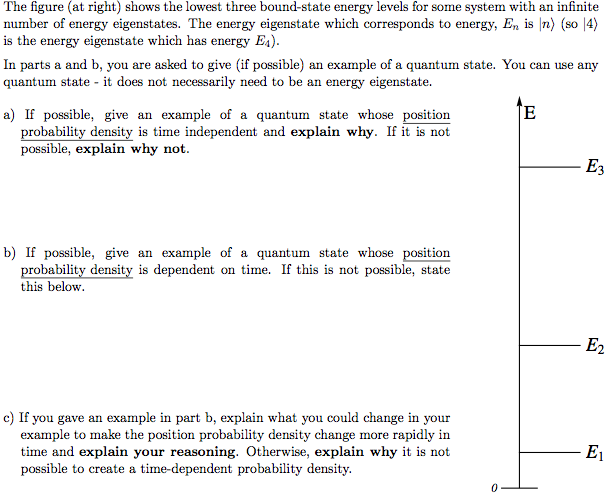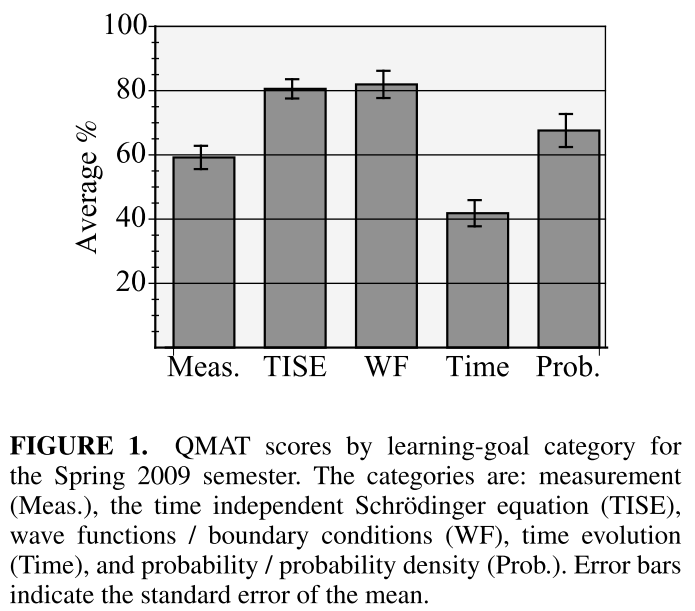Developed by Steve Goldhaber and Steven Pollock
| Purpose |
The gauge student learning in first semester junior-level quantum mechanics courses, as well as to compare your students skills to those in other universities.
|
|---|---|
| Format | Short answer |
| Duration | 50 min |
| Focus | Modern / Quantum Content knowledge (wave functions, measurement, time dependence, probability, infinite square well, 1D tunneling, energy levels) |
| Level | Upper-level |
Sample question from the QMAT:
QMAT Implementation and Troubleshooting Guide
Everything you need to know about implementing the QMAT in your class.
Login or register to download the implementation guide.
The QMAT has been replaced with a multiple-choice version, the QMCA.
The Colorado Science Education Initiative (SEI) and collaborators have developed a wide range of curricular materials for teaching junior-level quantum mechanics, of which the QMAT is only one. Please visit the course website for other materials such as group activities, clicker questions, and homework.
more details
This is the third highest level of research validation, corresponding to at least 3 of the validation categories below.
Research Validation Summary
Based on Research Into:
- Student thinking
Studied Using:
- Student interviews
- Expert review
- Appropriate statistical analysis
Research Conducted:
- At multiple institutions
- By multiple research groups
- Peer-reviewed publication
The open-ended questions on the QMAT were developed based on questions from other quantum mechanics assessments, faculty input and observed student difficulties with relevant concepts. Students participated in think aloud interviews about the questions, which were subsequently revised. The QMAT questions were given to over 25 students, and further revised. More student interviews were conducted and experts reviewed the QMAT. The QMAT has been given to over 60 students at one institution and the results published in one peer-reviewed publication.
References
- S. Goldhaber, S. Pollock, M. Dubson, P. Beale, and K. Perkins, Transforming Upper-Division Quantum Mechanics: Learning Goals and Assessment, presented at the Physics Education Research Conference 2009, Ann Arbor, Michigan, 2009.
We don't have any translations of this assessment yet.
If you know of a translation that we don't have yet, or if you would like to translate this assessment, please contact us!

Login or register to download an excel scoring and analysis tool for this assessment.
| Typical Results |
|---|
Typical results from Goldhaber et. al 2009:
|
The latest version of the QMAT, released in 2009, is version 3.0. The developers no longer recommend using the QMAT, since it has been replaced with a multiple-choice version, the QMCA.
Variation
|
|
Quantum Mechanics Concept AssessmentContent knowledge Modern / Quantum (infinite square well, 1D tunneling, energy levels, spins, wave functions, measurement, time dependence, probability)Upper-level Multiple-choice |




